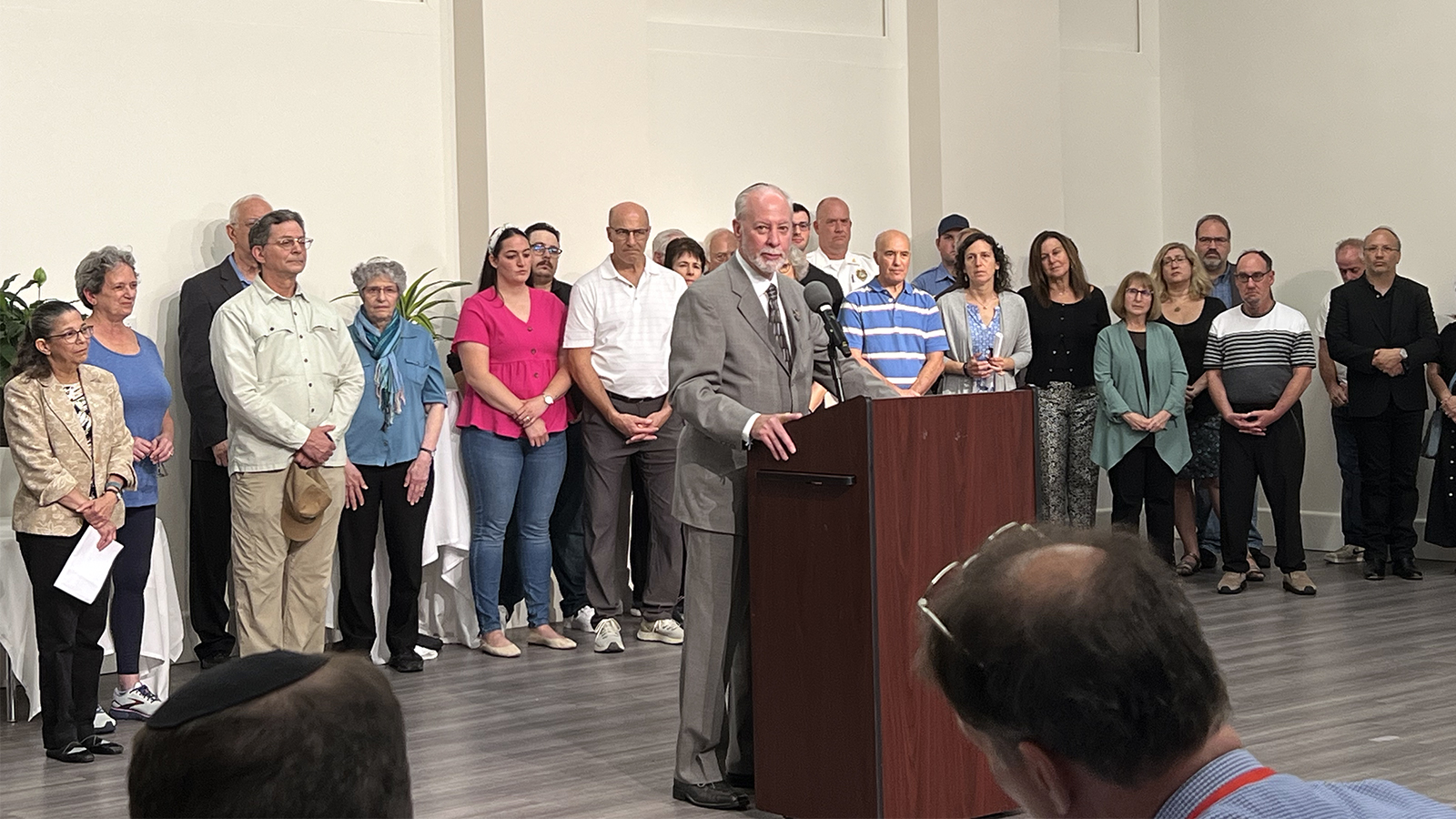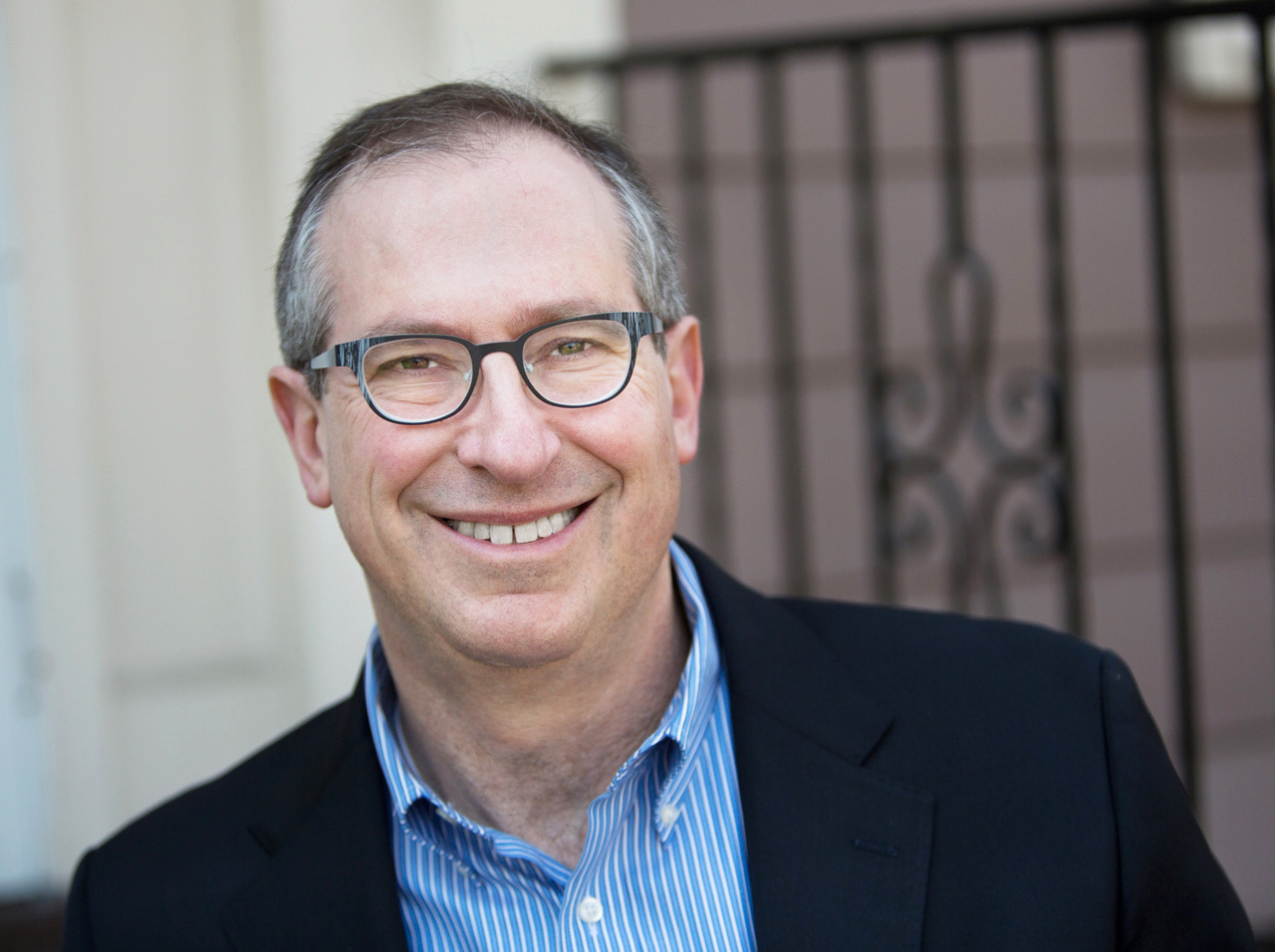PITTSBURGH (RNS) — In the days after Oct. 27, 2018, when an antisemitic gunman stormed the Tree of Life Synagogue at the heart of Pittsburgh’s Jewish community, Rabbi Jeffrey Myers was unable to pray.
Myers, the rabbi and cantor for Tree of Life, had survived the worst antisemitic attack in U.S. history by hiding in a small second-floor bathroom near a choir loft. By the time it was over, the shooter had taken 11 lives from three congregations meeting at the synagogue for Shabbat services that day.
Experiencing anguish and at a loss for words, Myers turned to the Book of Psalms, “knowing the full range of human emotions that the Psalms represent during King David’s life,” Myers told Religion News Service. He started at Psalm 1 and began reading through each of them, looking for inspiration.
Then he landed on Psalm 121.
“I lift my eyes to the hills, where will my help come? My help comes from God, maker of heavens and earth,” he read.
“There it was,” said Myers. “It said it in such simplicity.” In the words of the psalm, Myers found space for both sorrow and solace. He began to incorporate the psalm into his daily routine, making it the first thing he read after waking up. With these words, he could pray again.
In August, after gunman Robert Bowers was sentenced to death by a unanimous jury for the deadly hate crimes, Myers spoke to reporters at a press conference at Pittsburgh’s Jewish Community Center, saying that while many of those affected by the shooting had been “stuck in neutral for five years,” the end of the trial, he hoped, signaled a new season of healing.

Rabbi Jeffrey Myers speaks to the media, surrounded by victims and families of victims, following the sentencing of Robert Bowers at the Jewish Community Center in Pittsburgh, Wednesday, Aug. 2, 2023. Bowers was sentenced to death for killing 11 people at the Tree of Life synagogue in Pittsburgh in 2018. (RNS photo/Kathryn Post)
But that changed, he told RNS, with the Oct. 7 attacks by Hamas terrorists in southern Israel.
“It added a layer of trauma to us now remembering five years, which is traumatic enough. You add that additional piece, the pain, the fear in America that is so rampant,” said Myers. “It’s made (the anniversary) even more impactful this year.”
Even amid the terror of the Hamas attacks and Wednesday’s mass shooting in Lewiston, Maine, Myers said Psalm 121 continues to resonate.
“It’s the lighthouse in the fog,” said Myers. “Sometimes you wonder, where are the answers? That psalm just comes right through to me, clearly, and just gives me reassurance for the day.”
Now, the psalm — and its impact on Myers — will be shared with an entirely new audience.
This spring, Myers contacted Gerald Cohen, a Jewish composer and cantor at Shaarei Tikvah in Scarsdale, New York. Myers had learned that Violins of Hope, a group that organizes concerts featuring a collection of violins played by Jews during the Holocaust, would be coming to Pittsburgh. He immediately knew that instruments with this legacy had to be involved in a composition commemorating the shooting.
“While the owners of these instruments were silenced, the violins were not. And they continue to testify of what happens when evil is unchecked,” said Myers. “And yet out of them can be such beauty, despite what these violins witnessed.”
The Tree of Life congregation commissioned Cohen to compose a setting of Psalm 121 in memory of the 11 victims of the shooting. The piece will premiere with Myers as the soloist alongside the Pittsburgh Youth Chorus at an interfaith concert on Nov. 8 at the University of Pittsburgh, featuring Violins of Hope.
“I hope I can hold it together when I sing,” said Myers, who is rehearsing the piece with the Pittsburgh Youth Chorus for the first time on Monday.
The piece, called “A Psalm for Pittsburgh,” is inspired by the comfort Myers found in the psalm in the wake of the tragedy.
“My focus was on his personal journey, and the journey of anyone who is going through great suffering and mourning and sorrow,” Cohen told Religion News Service. “Knowing that meditating on this text is what allowed him to move forward, that certainly has colored, in a very powerful way, my thoughts about this psalm.”

Composer Gerald Cohen. (Submitted photo)
Sung in Hebrew, Cohen’s piece begins tentatively, with a wordless melody eventually giving way to single words, then a dialogue with the youth chorus. “From where will my help come?” the soloist asks. “My help is from Adonai, maker of the heavens and the earth,” the youth chorus answers.
“This is such an atmospheric piece. It’s very deep. It evokes all kinds of feelings, as it should,” Shawn Funk, artistic director of the Pittsburgh Youth Chorus, told RNS. “The music provides a story in and of itself.”
Cohen said his composition is not about transcending grief, but about “finding a way toward a glimmer of hope and returning to a love of the world,” even in the midst of sorrow.
And hope is what our world desperately needs, according to Myers. He said it’s the support from people in Pittsburgh, the emails and letters of encouragement he receives daily from around the world, and music like this that continue to bring healing.
“Music, when it comes in the ears, it doesn’t go to your brain,” said Myers. “It goes directly to your heart. And it can uplift you in ways that go far beyond words.”
>>> Read full article>>>
Copyright for syndicated content belongs to the linked Source : ReligionNews – https://religionnews.com/2023/10/27/5-years-after-massacre-tree-of-life-rabbi-inspires-a-psalm-for-pittsburgh/










